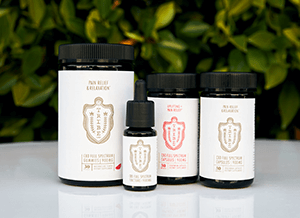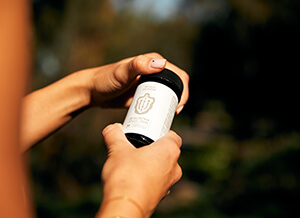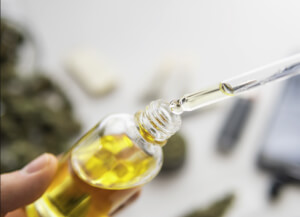Everyone knows they should “eat more greens,” but what about eating your “blues?” Sure, green veggies are essential for overall health, but that doesn’t mean other colored foods aren’t beneficial. For instance, blueberries are an undisputed superfood. Spirulina is another “bluish” food that’s taking the health world by storm.
Spirulina has both blue and green pigments, which may be why it appears to have so many supposed health benefits. Interestingly, this edible algae seems to have many of the pros associated with CBD oil. So, if you want to sneak even more nutrition into your CBD routine, you may want to consider adding a scoop of spirulina.
What’s So “Super” About Spirulina?
If you were to see spirulina in its natural habitat, you probably wouldn’t assume it’s a healthy food. Indeed, since spirulina is algae, many people might not think it’s edible. However, there are records of people using spirulina as a natural energy food since the days of the Aztec Empire.
More recently, organizations as large as NASA believe in the superfood potential of spirulina. In fact, reports from NASA determined that spirulina is one of the most nutrient-dense foods on the planet; hence, they often advise astronauts to pack plenty of spirulina snacks for their journey! According to NASA’s records, just 1 kg of spirulina contains all the nutrients you’d find in about 1,000 kg of fruits and veggies.
There are too many minerals, vitamins, and amino acids in spirulina to list in this post. However, a few of the most significant compounds in spirulina include magnesium, iron, and potassium. There’s also a high amount of protein in spirulina, which makes it an excellent option for those on a vegan or vegetarian diet.
Last, but certainly not least, spirulina has many fascinating antioxidants. Most notably, spirulina powder has high amounts of phycocyanin, which helps give this algae its blue hue. There’s also preliminary evidence that phycocyanin helps support the body’s natural detoxification pathways.
Does Spirulina Work Well With CBD?
Since spirulina is so jam-packed with nutrients, it’s hard to argue this supplement is a “bad” addition to any healthy adult’s diet. Indeed, many people use spirulina as their daily “multivitamin.” There also appears to be some crossover between spirulina’s effects and Tribe CBD oil.
While broad-spectrum hemp extract doesn’t have as many nutrients as spirulina, it does contain chlorophyll. Chlorophyll has a bad reputation for giving supplements a “grassy” flavor, but there are studies that suggest it has antioxidant properties. Broad-spectrum CBD oils and spirulina usually contain high amounts of chlorophyll, which may positively affect overall health.
Plus, it’s crucial to remember CBD works primarily on the endocannabinoid system (ECS). Unlike most other supplements, CBD oil can influence our mood, appetite, and sleep by altering how the ECS operates. To date, there’s no evidence spirulina has as significant an effect on the ECS.
Combining spirulina with CBD oil in a morning smoothie may help you enjoy “double benefits” from these superfood supplements.
Please Study Your COAs For CBD & Spirulina!
Since CBD and spirulina are so popular nowadays, there are countless products to choose from. Unfortunately, there are also a ton of scammers in the supplements market that aren’t correctly screening their goods. Please remember that hemp and spirulina can absorb toxins, which means they can work their way into final products. The only way to ensure your supplements are pure is to work with companies that send their products for third-party lab tests.
Tribe CBD promises to use the finest American-grown hemp flower for our CBD oils, gummies, and creams. Please follow this link to see why Tribe CBD is a hemp brand you can trust.




